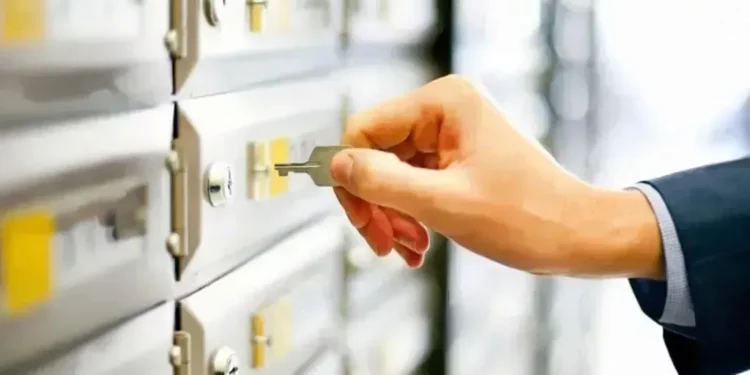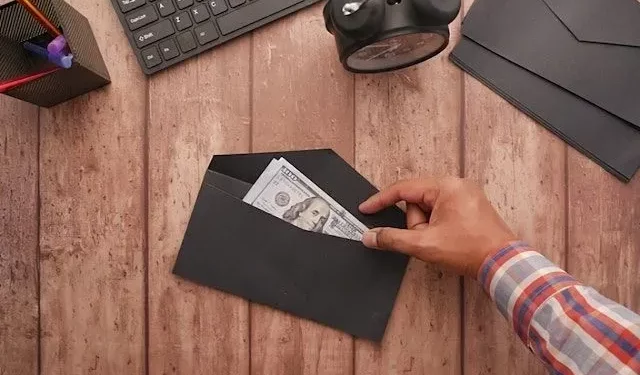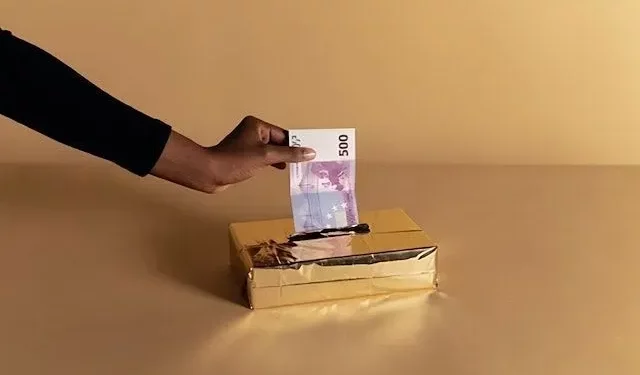When it comes to keeping your money safe, you may be wondering if a safe deposit box is the right choice. With more and more people turning to digital banking, it’s easy to forget about the traditional ways of safeguarding your money in a safe.
But is it safe to keep your money in a safe deposit box? In this blog post, we’ll explore the benefits and drawbacks of putting your money in a safe deposit box and see if it’s the right choice for you.
What is a safe deposit box?
A safe deposit box, often known as a safe deposit box, is a secure, lockable box located within a financial institution such as a bank or credit union.
These boxes are intended to provide additional security for customers’ most valuable things and documents, such as jewelry, family artifacts, and important documents such as birth certificates and passports.
Safe deposit boxes exist in a variety of sizes, with some banks and credit unions even offering larger ones for a fee.
Also read: Is Credit Card Better Than Debit Card?
Customers who purchase a safe deposit box will be given a key that will be used to open the box. As an added precaution, some banks may ask customers to sign in at the front desk before using the box.
Customers can also opt for a second key that requires two signatures to open the box.
Because safe deposit boxes are secure and often placed within banks, they are regarded as an excellent option to store crucial documents and other valuables in a secure environment.
So, if you want an extra level of protection for your most important items, a safe deposit box is something to consider.

How do I get one? (money in a safe)
If you want to save your money in a safe deposit box, you should know how to get one. The process for obtaining a safe deposit box differs depending on the financial institution, so contact your bank or credit union for additional information. In general.
However, here is how to acquire a safe deposit box:
1. Contact your bank or credit union. Many banks and credit unions offer safe deposit boxes. Contact your local branch to inquire about the size, cost, and availability of safe deposit boxes.
2. Gather the necessary documents. When you apply for a safe deposit box, you will likely need to provide valid identification, such as a driver’s license or passport.
3. Sign the agreement. You will likely have to sign a rental agreement that states that the institution is not liable for any damage or loss of property stored in the box.
4. Pay the fee. Most institutions charge an annual fee to rent a safe deposit box, though some may have discounts for multiple-year rentals.
5. Pick up your keys. Upon approval of your application, you will receive two keys to the box. Be sure to keep them in a secure location!
It’s important to note that safe deposit boxes are not insured by the FDIC like regular bank accounts. Therefore, it’s important to research and understand the risks associated with using a safe deposit box before deciding to use one.
Also read: How do you manage your personal finance?
How much does it cost?
Storing your money in a safe deposit box can be an excellent way to safeguard it against theft, fire, and other unforeseeable tragedies. But how much does renting a safe deposit box cost?
The cost of renting a safe deposit box varies according to its size and location. Boxes often range in size from tiny (about 5×5 inches) to extra-large (roughly 10×10 inches).
Prices differ depending on the institution. A large box at a bank, for example, may cost roughly $50 per year, whereas a box at a credit union may only cost about $25 per year.
Furthermore, certain banks and credit unions may provide discounts for additional boxes or longer leasing terms.
Also read: Why Is Medical Insurance Important? Five Reasons
If you’re interested in renting a safe deposit box, the best thing to do is contact your local bank or credit union and ask about their rates.
It’s also important to read through the fine print so you understand what your rental agreement entails.
Furthermore, acquiring a safe deposit box is a low-cost solution to keeping your valuables safe. However, before making a decision, it is essential to evaluate the costs.

What can I put in my safe deposit box?
Safe deposit boxes are highly secure storage containers that banks or other financial institutions provide. They are used to store essential documents and objects such as jewels, cash, precious items, and other valuables.
What can you put in a safe deposit box? The answer depends on the size of your box and the type of items you want to store. Generally, most items that fit inside a safe deposit box can be stored safely.
Here are some of the most common items you can store in a safe deposit box:
• Cash: Cash is one of the most common items stored in a safe deposit box. It’s important to note that the money in your safe deposit box must remain there and should not be used for day-to-day spending or investments.
• Important Documents: Storing important documents such as birth certificates, passports, titles, deeds, contracts, and wills in a safe deposit box is a good way to ensure their safety and keep them from getting lost or damaged.
•Jewelry and Collectibles: Many people use a safe deposit box to store jewelry, coins, art, antiques, and other collectibles that may be valuable.
• Electronic Media: A safe deposit box is also an ideal place to store electronic media such as CDs and USB drives that contain sensitive information.
Remember to read the terms and conditions of the agreements if you choose to store items in a safe deposit box. Some banks have restrictions on what you can and cannot store in your safe deposit box.
What are the benefits of using a safe deposit box?
Using a safe deposit box is an excellent way to protect your most valuable items and documents. Safe deposit boxes offer protection from natural disasters, theft, fire, and other unexpected events.

Here are some of the benefits of using a safe deposit box to store your money and other important items:
1. Security: Your items are stored securely in a vault protected by a combination lock and CCTV surveillance. This means that only you will have access to your items and documents, providing peace of mind that your possessions are protected.
2. Accessibility: You will be able to access your safe deposit box whenever you need to, making it easy for you to quickly access important documents or items.
3. Privacy: Storing items in a safe deposit box ensures that your private items remain confidential. This can help you protect your financial information and other confidential information from prying eyes.
4. Protection from Natural Disasters: In the event of a natural disaster, such as a flood or an earthquake, you can rest assured that your items stored in a safe deposit box will be safe from damage.
5. Peace of Mind: Knowing that your valuable items are kept safe in a secure environment can give you peace of mind and allow you to enjoy your life without worrying about the safety of your possessions.
Overall, using a safe deposit box is a great way to ensure that your most valuable items are secure and protected from any unexpected event. With its reliable security measures and easy accessibility, a safe deposit box can provide you with the protection you need and the peace of mind you desire.
Also read: Leasing a car vs buying pros and cons
Are there any risks to using a safe deposit box?
When storing your money, you may have considered using a safe deposit box. But before you deposit your money in a box, you should be aware of the risks involved.
Safe deposit boxes are typically rented from a bank or other financial institution and are intended to provide additional security for your essential documents, valuables, and cash. While these boxes are normally secure, there are a few risks to consider.
First, if your bank declares bankruptcy, your safe deposit box may be inaccessible until the bank is liquidated. Furthermore, if you fail to make timely payments, the bank may seize your belongings.
Furthermore, if you do not have proper identification and documentation, the bank may refuse to let you access your box.
Also Read: How Investing in Real Estate Works
Finally, theft is one of the risks involved with safe deposit boxes.
While banks have anti-theft mechanisms in place, no system is impenetrable. You may lose important stuff and cash if someone breaks into your box.
For these reasons, before making any decisions, it is important to take into account the risks of storing your money in a safe deposit box.
While these boxes are usually a secure place to keep your belongings, it is important to weigh the risks and benefits of this storage option before determining if it is best for you.
How can I ensure that my valuables are safe in a safe deposit box?
When it comes to protecting your valuables, a safe deposit box is a popular option. But before deciding to store your money in a safe deposit box, there are some key considerations you should keep in mind.
First, it’s important to understand the rules and regulations of the bank or other entity that holds the box. Make sure you understand what rights you have and don’t have in terms of access to the box and the items inside.
It’s also important to ensure the safety of your items.
Also Read: The Pros and Cons of Investing vs Saving
Ask the bank or other holder about the security of their facility and whether they have any backup procedures in place in case of a break-in or other emergency. Additionally, find out if there is any insurance coverage for items stored in the safe deposit box and ensure it is adequate for your needs.
Finally, make sure you are comfortable with any restrictions on access to the box. For example, some banks may require two people to access the box, while others may limit access to certain times during business hours.
Be sure to read through all of the fine print before making your decision.
By doing your research and asking questions, you can be sure that your belongings are secure and properly protected while stored in a safe deposit box.









